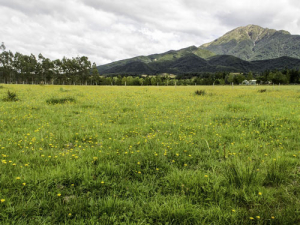NZ kiwifruit sector on alert for mysterious Italian disease
New Zealand's kiwifruit industry is on alert following reports of a mystery disease that is sweeping through Italian orchards.
 Pests are a symptom of an unsustainable farming method, says a visiting expert in ‘regenerative’ agriculture.
Pests are a symptom of an unsustainable farming method, says a visiting expert in ‘regenerative’ agriculture.
Farmers should stop treating agricultural pests as a problem, and instead realise they are a symptom of an unsustainable farming method, says a visiting expert in ‘regenerative’ agriculture.
Dr Jonathan Lundgren, founder of Ecdysis Foundation and Blue Dasher Farm, visited New Zealand for an international workshop on conservation biological control of invertebrate pests, hosted by the Bio-Protection Research Centre at Lincoln University.
He told workshop participants that healthy ecosystems do not have the pest problems that are present in ‘monoculture’ agriculture.
“If you have a pest problem in your field, that’s your field telling you that something is out of whack. If all you are doing is reacting to a pest problem, then you are never going to get ahead; you’ve got to solve the underlying problem, not just the symptoms.”
The underlying problem is lack of biodiversity, Lundgren said. “The way we approach our food production is much too simplified.”
Instead, he said, regenerative agriculture solves pest problems and is more profitable.
Regenerative agriculture goes beyond sustainable agriculture by trying to regenerate degraded land and ecosystems rather than simply sustaining what is left. Farmers who follow regenerative methods use few if any pesticides, don’t till the land, practise crop and stock rotation that mimic natural processes, and encourage biodiversity.
Lundgren said one study found more diverse and more populous insect communities in cow dung from regenerative farms, including more predators of pest species (mostly flies).
Eastern Bay of Plenty farmer Rebecca O’Brien was named the 2024 Dairy Women’s Network (DWN) Regional Leader of the Year.
Humbling, overwhelming, and an absolute honour. That’s how 2024 Fonterra Dairy Woman of the Year Katrina Roberts describes her win at the Dairy Women’s Network conference earlier this month.
Hamilton-based Dairy Goat Co-operative (DGC) is revamping its leadership in the hope of recovering from its financial doldrums.
With just over two weeks left in the 2023-24 season, all eyes will be on Fonterra's opening milk price for the new season.
Fonterra Brands' Cathy Lang has been crowned the country's best cheesemaker for the second time in three years.
James and Debbie Stewart of Dairylands in the Manawatū are no strangers to taking home the silverware.
OPINION: Not everyone will agree with former 'Minister of Everything' Stephen Joyce on his summation of Fonterra when writing recently…
OPINION: A plug is overdue for Meat the Need, who is currently fundraising to help supply more meals to families…